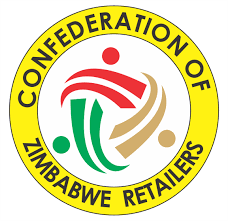FIU seeks ZiG acceptance by small traders
THE Financial Intelligence Unit (FIU), an autonomous arm of the Reserve Bank of Zimbabwe (RBZ), will today meet small and medium-sized retailers and wholesalers to discuss compliance issues relating to the use of Zimbabwe Gold (ZiG) in transacting.
This follows the introduction of the new currency early last month, as authorities moved to address the volatility of the domestic currency, which has been at the heart of rapid inflation increases in the country.
Zimbabwe’s new currency is backed by a basket of precious commodities, mainly gold, and foreign currency reserves, with a combined value of roughly US$285 million.
In a letter to Confederation of Zimbabwe Retailers (CZR) president, Denford Mutashu, FIU director general Oliver Chiperesa, said the meeting with the small retailers followed an earlier fruitful engagement with the large operators.
The FIU is an autonomous regulatory body, but within the purview of the central bank, responsible for the regulation and supervision of financial services business conducted in and from Zimbabwe.
“The FIU recently held a fruitful engagement meeting with various large retailers and wholesalers as well as suppliers and manufacturers, wherein the bulk of your membership was not involved.
“It is our belief that smaller to medium-sized retailers, who play a key role in our economy because of their wider reach to the general population, have the potential to contribute more in supporting Zimbabwe’s new currency, the ZiG,” Mr Chiperesa said.
He pointed out that the purpose of today’s meeting with the small traders was to discuss compliance issues so that the enterprises do not get caught on the wrong side of the law. Mr Mutashu told The Herald Finance & Business in an interview yesterday that today’s meeting follows an earlier one between retailers, manufacturers and wholesalers to compare notes on ZiG acceptance compliance.
“Tomorrow at 11 AM, we are meeting FIU again but this time with small to medium enterprise players of the retail and wholesale sector; the so-called tuckshops actually form the bulk of the contingent of sector players that we are going with.
“On the part of members that are in the large scale retail and wholesale operations, they have complied and in the main are accepting ZiG.
“So far from the meeting we had this afternoon (Yesterday), which was convened by the Ministry of Industry and Commerce, the large sector players indicated that, currently, their sales composition has got a ratio of 80 percent ZiG and 20 percent US dollars.
“Unfortunately, the supply chain is demanding 80 percent USD and 20 percent ZiG. So, the purpose of meeting the so-called tuckshops and the small players is to ensure that the enforcement is not confined to larger players only, we are targeting to spread compliance within the small to medium retail and wholesale players, just to ensure there is fair competition and that customers are not prejudiced.
“If they have got issues that they have got to raise with FIU, this is the perfect chance for them, which has been provided by FIU to ensure that the continuous process of engagement does not leave anyone and any place behind.
“One of the key issues is the issue of POS machines, the issue of accepting mobile platform payments, and also the issue of 100 percent demand for US dollars, which of course is informed by the structure of the supply chain.
“The manufacturers and suppliers, who were part of the meeting held this afternoon (yesterday) and part of the meeting held with large corporates last week, also indicated that so far they have not been able to get sufficient foreign currency from their bankers.
“It is a matter of serious concern which we believe once resolved by the Reserve Bank will help to reduce the presence or traffic into the parallel market. It is one of the key areas that we want to discuss,” Mr Mutashu said.
He said CZR sought to promote legal enterprising and contribution by their members to the fiscus and all Government programmes through payment of fiscal revenue and other statutory and regulatory obligations. Mr Mutashu said the convertibility of ZiG in the market would be key to driving its acceptance across the economy. He said the manufacturers’ plight regarding access to forex was realistic.
Some of them, he said, were sitting on as much as ZiG180 million, which could not be used to secure the required foreign currency suppliers of raw materials demand.
“This whole matter rests with the Reserve Bank and the financial services sector; there has got to be a way to capacitate banks, lubricate banks or oil banks so that they have got sufficient foreign currency for supporting the productive sector transactions,” he said.
Mr Mutashu said failure to address the issue of US dollar liquidity among banks could pause significant challenges in enforcing compliance in the market.
While the small traders, combined move tonnes of goods daily given their more affordable prices, the bulk of them are not registered and deal exclusively in foreign currency cash. Most manufacturers of certain basic or popular brands in the country now prefer supplying the small traders market segment given that it pays instant foreign currency cash for products upon delivery.
Because the bulk of the small operators in this segment do not pay taxes at all or in full, their prices are cheaper than their large-scale counterparts, which makes them more competitive.
However, many small-scale traders operate outside the provisions of the law, including regarding tax compliance while they do not accept payments in local currency.
Several economic agents, among them business entities and schools, continue to demand payments exclusively in US dollars, militating against the Government’s concerted efforts to ensure a stable local currency.-herald










